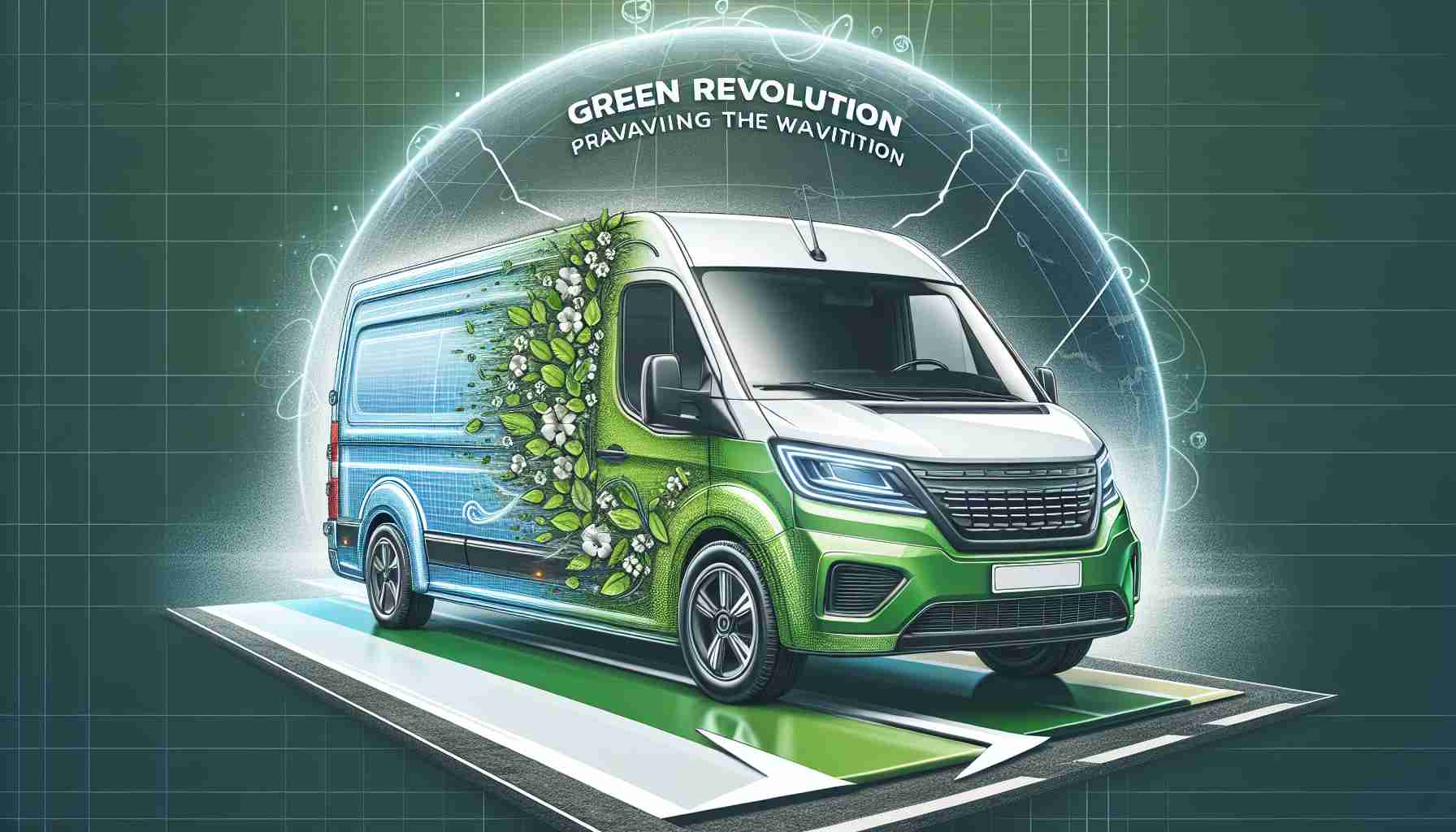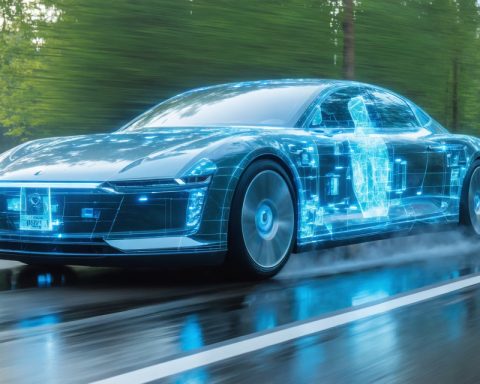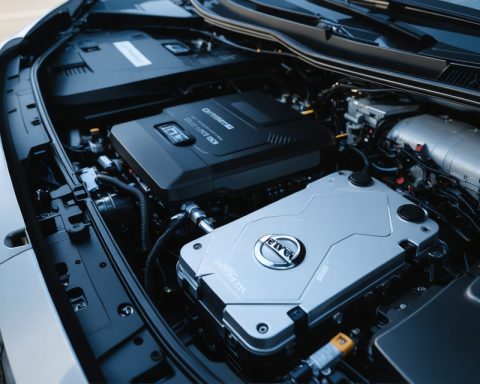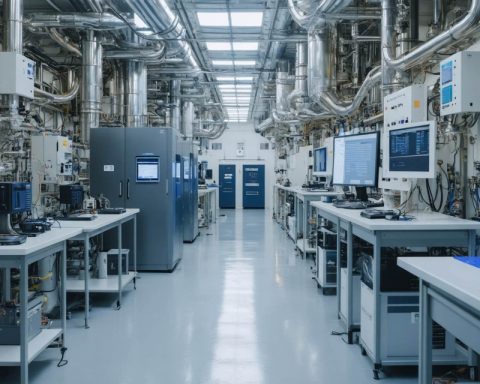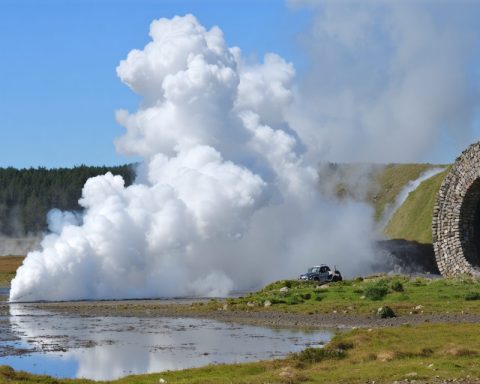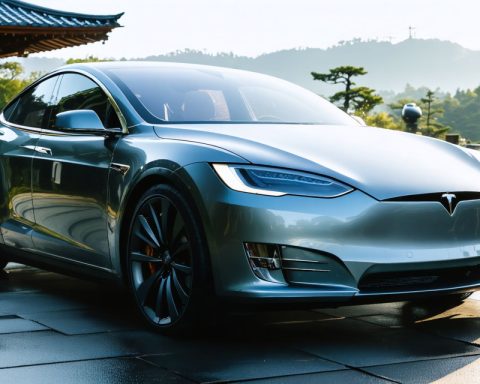In an exciting development for eco-conscious travelers, Toyota Motor Corp. has announced an ambitious venture in Australia that could redefine sustainable transport. Next spring, Toyota will launch public road tests of its innovative hybrid van—a unit that ingeniously merges hydrogen technology with electric power, marking a potential first in automotive history.
This groundbreaking vehicle, the hydrogen-electric hybrid HiAce van, was showcased to the media with great fanfare. Enhancing its allure, the van boasts a remarkable 20 percent increase in driving range, reaching an impressive 250 kilometers—outperforming traditional hydrogen-only models. The announcement is a key component of Toyota’s visionary “multi-pathway strategy,” through which the company is striving to diversify its lineup of environmentally friendly vehicles. By offering a range—from gasoline-electric hybrids to hydrogen fuel cells and fully electric vehicles—Toyota is committed to slashing carbon emissions and adapting to varied customer needs globally.
Although Toyota has been testing hydrogen-engine vehicles on Australian roads since last year, integrating an electric motor into this hybrid model promises to address pivotal challenges. Issues like limited refueling infrastructure and high fuel costs have been notable obstacles. Toyota’s dedication to overcoming these hurdles is evident, with executives expressing resolve and determination to usher in a hydrogen-centric future.
This innovation not only exemplifies Toyota’s leadership in green technology but also hints at a transformative shift in the industry, potentially accelerating the adoption of sustainable vehicles worldwide. As Toyota pushes forward, this fusion of hydrogen and electric power might just be the catalyst needed for a cleaner tomorrow.
Will Toyota’s Hydrogen-Electric Hybrid Van Revolutionize Sustainable Transportation?
In a world increasingly focused on sustainability, Toyota Motor Corp.’s latest announcement about its hybrid hydrogen-electric van in Australia is generating immense excitement. While the innovative technology certainly shines a spotlight on the company’s commitment to eco-friendly travel, let’s explore some intriguing angles not covered in the initial news and consider the broader impact of such advancements on global communities and everyday lives.
Implications for the Transportation Sector
The introduction of hydrogen-electric vehicles (HEVs) like Toyota’s HiAce van could signal a significant shift in the transportation industry. One of the greatest advantages of HEVs is their ability to reduce greenhouse gas emissions. If replicated successfully, this model could drastically alter how we perceive and utilize public and commercial transport, particularly for businesses reliant on fleets, such as delivery and logistics companies.
Local Impact: Australia’s Renewable Energy Potential
Australia, with its abundant renewable energy resources, is uniquely positioned to benefit from an increase in hydrogen technology. The vast solar and wind capacities can drive inexpensive hydrogen production, fostering energy independence and creating new jobs in the renewable sector. With Toyota’s initiative, Australia could pave the way for a hydrogen-based economy—potentially influencing other nations to follow suit.
Challenges and Controversies
However, the road to a hydrogen future isn’t without its hurdles. Countries must address infrastructure deficiencies, notably the scarcity of hydrogen refueling stations. Critics also wonder whether the investment in hydrogen technology is as feasible or impactful as pushing solely for electric vehicles (EVs) and the accompanying battery advancements. Furthermore, the cost of producing green hydrogen remains high compared to fossil fuels, which makes the economic transition challenging in the short term.
Questioning the Viability: Is Hydrogen Truly Green?
One key controversy surrounding hydrogen vehicles is their environmental footprint. The majority of today’s hydrogen is still produced using natural gas, a process that emits CO2. This raises the question: Is hydrogen truly a greener alternative? While Toyota aims for green hydrogen, countries must ensure the production process follows suit to realize the full benefits.
Could Hydrogen-Electric Hybrids Be the Missing Link?
Despite these challenges, hybrid vehicles like the HiAce could be instrumental in bridging the gap between current fossil fuel usage and a carbon-neutral future. Their adaptability might ease the transition for consumers who are still cautious about fully electric options due to range anxiety or charging concerns.
Future Prospects and Conclusion
Toyota’s foray into hydrogen-electric hybrids could be a game changer, especially if other manufacturers join the movement, fostering competition, innovation, and eventually, more affordable solutions. As consumers increasingly demand sustainable alternatives, and governments push for drastic emissions cuts, initiatives like these not only inspire hope but also encourage vital discourse on optimum paths forward.
For further reading on sustainable vehicle technology and environmental impact, visit Toyota’s official site: Toyota’s Official Site.
So, will this new hybrid van mark the beginning of a hydrogen-powered era in transportation? Only time will tell, but one thing is clear: the wheels of innovation are in motion, and the world is watching.
